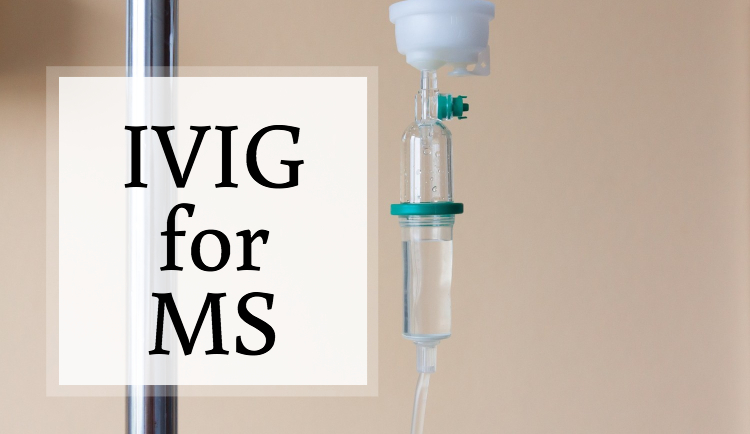IVIG Side Effects – Best-Practices to Avoid Them
Adverse drug reactions, commonly referred to as IVIG side effects, are the known, but undesired effects of medications and medical procedures. For example, you might take an analgesic for its intended effect of relieving a headache or sore muscle pain. As a side effect, you might also experience an upset stomach.
Just as with any other type of treatment or medication, there is a possibility of encountering side effects when undergoing IVIG treatment. The good news is that a majority of patients who receive intravenous immunoglobulin therapy don’t experience any side effects at all. It is, however, important for both patient and caregiver(s) to be prepared. If side effects do arise, they are generally easier to control or eliminate if everyone involved plans ahead.
Classification of IVIG Side Effects

Some side effects of IVIG therapy are more common than others. Overall, side effects are generally categorized as either severe or mild. Severe side effects should be reported immediately to a medical professional and may require extra medical attention. Mild, sometimes called minor, side effects are generally easy to treat and/or control and may even disappear on their own as the body becomes accustomed to the treatment.
Best-practices to Avoid Mild IVIG Side Effects
Mild to moderate side effects of IVIG therapy can often be controlled, or even avoided altogether, with simple, easy to implement treatments. Some of the most common mild side effects include:
- Headache
- Chills
- Myalgia
- Increased heart rate/pulse
- Nausea
- Lower back pain
- Hypotension
Headaches and migraines tend to be the most commonly experienced side effects of IVIG. In most cases, patients can control or eliminate these and other side effects through the use of NSAIDS, steroids, and antihistamines before and after an IVIG infusion. In some cases, simply changing IVIG dosage or adjusting the administration schedule can reduce or remove side effects. Additionally, patients have also reported much less discomfort due to side effects when they take steps to make sure they are fully hydrated before, during, and after an infusion.

Best-practices to Treat Severe IVIG Side Effects
Severe side effects from IVIG therapy are rare. They can often be reduced or avoided by screening patients for factors that would indicate they are predisposed to complications with this type of treatment.
Severe side effects of IVIG therapy can include:
- Thrombosis
- Acute renal failure
- Serum sickness
- Stevens-Johnson Syndrome
- Aseptic Meningitis
- Anaphylaxis
The patient may experience these conditions as labored breathing, difficulty swallowing, severe headache, tightness in the chest, fatigue or weakness, reddening of the skin, or severe itching, especially on the feet and hands.
Treatment for these side effects usually involves administration of antihistamines, steroids, and NSAIDS. In cases of a severe reaction, epinephrine may also be administered. Doctors have had success in eliminating these kinds of side effects for some patients by switching from an intravenous to a subcutaneous IG infusion method.
The Benefits Often Outweigh the Risks
Even though the possibility of experiencing side effects exists, the benefits of IVIG therapy outweigh the risks in the vast majority of cases. If a patient experiences side effects at all, they are usually easily treatable and end up being nothing more than a mild annoyance.
IVIG infusion treatments can provide significant help to patients with an immune deficiency, allowing their bodies to fight off illness and infections that could otherwise be dangerous or even life-threatening.
It has also been shown to be an effective treatment for many autoimmune diseases — when the immune system attacks some part of the body. It has been successfully used as part of the treatment for Chronic Inflammatory Demyelinating Polyneuropathy, Multiple Sclerosis, Multifocal Acquired Sensory and Motor Neuropathy, Dermatomyositis, Polymyositis and others.
 If you think you might be experiencing side effects as a result of your IVIG therapy, during or after an infusion, let your doctor know right away. Together, you’ll be able to decide the best course of action to help you reduce or eliminate any discomfort and get the best possible benefit from your treatment.
If you think you might be experiencing side effects as a result of your IVIG therapy, during or after an infusion, let your doctor know right away. Together, you’ll be able to decide the best course of action to help you reduce or eliminate any discomfort and get the best possible benefit from your treatment.





 At present, the medical community is fairly well divided on the effectiveness of IVIG for treating multiple sclerosis. Some studies seem to show beneficial effects from IVIG treatments while others report that there is no significant difference between patients treated with IVIG and those given a placebo.
At present, the medical community is fairly well divided on the effectiveness of IVIG for treating multiple sclerosis. Some studies seem to show beneficial effects from IVIG treatments while others report that there is no significant difference between patients treated with IVIG and those given a placebo. As with most medical treatments, someone treated with IVIG may experience side effects. Some of the most common side effects include:
As with most medical treatments, someone treated with IVIG may experience side effects. Some of the most common side effects include: